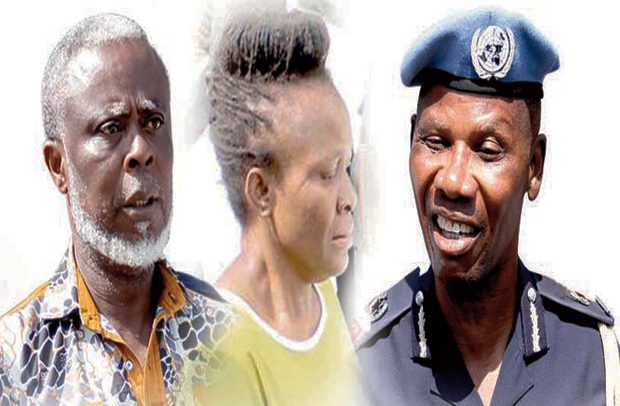Defence Lawyers in the ongoing treason trial involving ten persons have prayed the Accra High Court to out rightly reject the recordings done by the star prosecution witness.
Some of their reasons were the fact that the over 70 videos’ dates, times, places and situations varied, stating that whilst the time on the recordings indicated 2013, the alleged offence occurred between 2018 and 2019.
Victor Kwajoga Adawudu, counsel for four of the accused persons, said the prosecution (investigators) breached the constitution, in that they did not secure a court warrant before doing the secret recordings.
Again, he said that the recordings violated the fundamental human rights of the accused persons because they were obtained in violation of their rights as they were secretly recorded.
Mr Adawudu noted that some of the contents were irrelevant to the matter before the Court, citing a portion of one of the videos where a third party was recorded as part of the video when he called one of the accused persons, though nobody gave the permission for the recording.
The various recordings, he said, which talked about different roles played by some of the accused persons must be separated and analysed differently and not to be put together on one hard drive as done by prosecution, saying that every bit and piece must meet the admissibility criteria.
Anthony Lartey, Counsel for Johannes Zikpi, who associated himself with the mentioned submissions, also said the recordings were not authentic (had been tampered, that is manipulated with through editing or alteration) and not original because they were not in their raw footage form, unedited of what was allegedly recorded by the prosecution’s star witness- Staff Sergeant Sule Awarf.
He explained that to render the recordings admissible, Prosecution was under duty to produce the original, unmanipulated, unedited recordings whereas the Court was also entitled to examine the original recordings, stressing that those before the Court must be rejected in the interest of justice.
Bede Tuuku, Counsel for Lance Corporal Ali Solomon, also associated himself with the objections raised and added that the exhibits sought to be tendered in court were not from proper custody, saying that Staff Sergeant Awarf was not even privy to the content because he only sent the recordings to Colonel Amponsah, (in charge of the Military Academy Training School and first prosecution witness in the case) who in turn downloaded and accessed the contents without him (Sule) knowing the content.
The rest of the lawyers associated themselves with the submissions made by their colleagues.
In a rebuttal, Yvonne Attakorah Obuobisa, Director for Public Prosecution (DPP), prayed the Court to accept the recordings as evidence without which prosecution’s case would be jeopardised.
She emphasised that the materials were relevant and must be admitted because they had witness and the witness had also talked about all the facts in them important to help determine the case.
The right to privacy is not absolute. It can be infringed upon in the interest of the state, she said.
The DPP argued that the information was original and was not recorded in 2013 but between 2018 and 2019, it was procured by the Ghana Armed Forces and the original date was the same registered when it was first used.
With the authenticity, she said the chain of custody had not been broken which made the recordings original, witnesses identified them as well as Staff Sergeant Awarf having knowledge of the contents.
Dr Frederick Yao Mac Palm, Donyo Kafui, alias Ezor, Bright Alan Debrah, alias BB, Johannes Zikpi, Colonel Samuel Kojo Gameli, Warrant Officer Class Two Esther Saan, Corporal Seidu Abubakar, Lance Corporal Ali Solomon, Corporal Sylvester Akanpewe, Assistant Commissioner of Police Benjamin Kwasi Agordzo have been charged for varied offences such as conspiracy to commit crime, high treason, abetment of crime and possession of arms.
They have denied the charges and are being tried by a three-member-judge panel.
GNA


